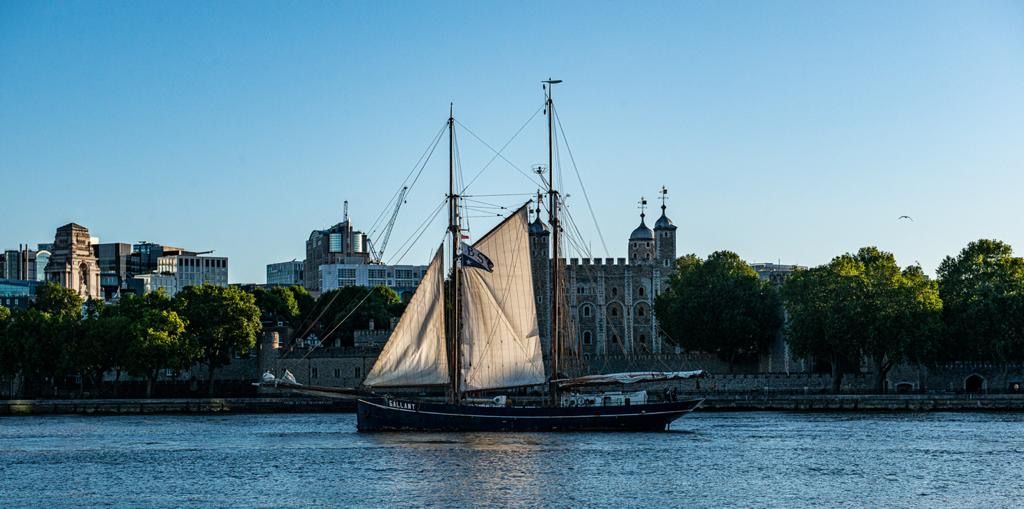The objective for Xisto has been clear from the outset – to make the most natural, authentic wines with the minimum impact on the planet.
Mention the port of Bristol these days and you conjure up images of Colston’s statue meeting a watery end, but there are many more trades that Bristol is reknowned for and even proud of. From the 1600s until it closed commercially in the 1970s the port was one of Britain’s major trading hubs, second only to London, importing wine, salt, olive oil, grain and timber largely from Ireland, France, Spain and Portugal.
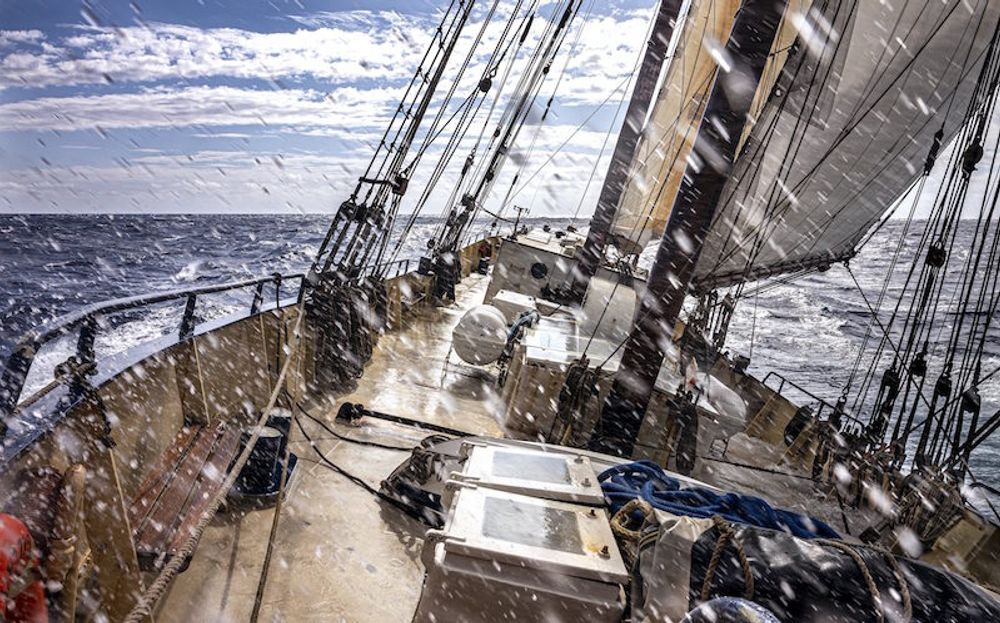
The route from Porto to Bristol involves crossing the notoriously choppy Bay of Biscay
It is the trade with Portugal that lies at the heart of Xisto Wines and its Port O’Bristol project which is restoring that unique relationship between the twin ports of Porto and Bristol importing wine and port. What makes it unique, though, is that it is all being done without any fossil fuel, meaning that all the wine is imported by traditional cargo vessels under sail.
Xisto has what it calls a Circle of Zero Waste modus operandi, which includes how the wine is made, how it is bottled and shipped, right down to what packaging it is delivered in and how it eventually reaches the customer in the UK, often in vehicles that run on used cooking oil donated by customers.
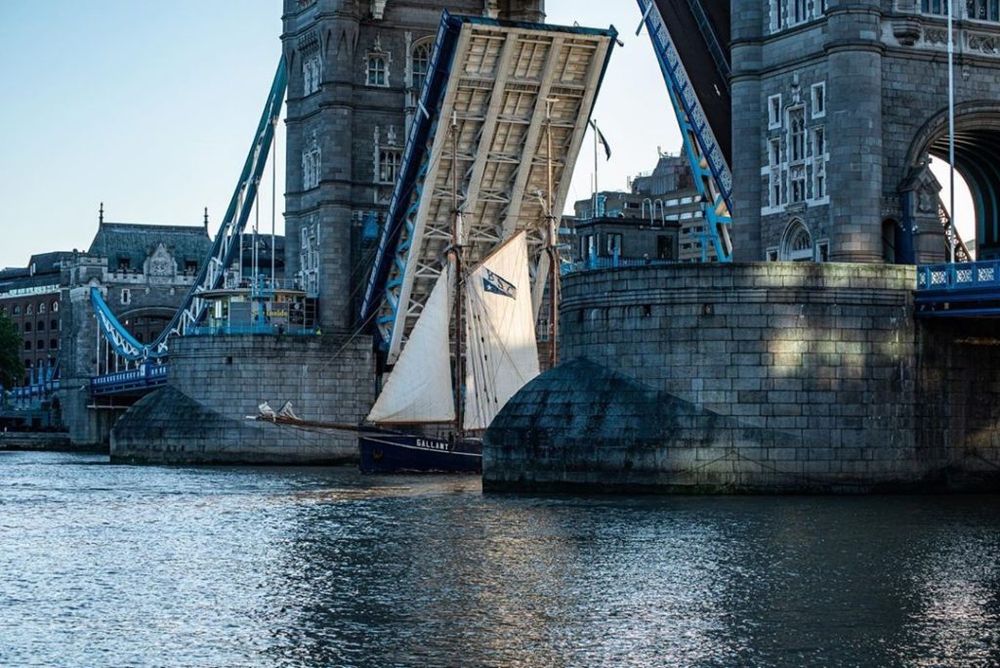
Xisco Wines arriving for the first time in London last week
Xisto is run by Bristolians Anton Mann and Lela McTernan who started as a back-of-a-camper-van food and wine importing business and have grown it over the years into an ambitious and sizeable operation. It’s an outfit that has innovation running through it like letters in a stick of seaside rock.
“It was always the elephant in the room,” says Anton on the beck of the Gallant after its maiden voyage to London, “I would talk with people in the trade and hear wonderful stories of winemaking family histories, organic and biodynamic practices, but the inconvenient truth was that this only went as far as the gates of the estate. Then larger scale industrial practices took over all the way. Our quest has been to offer an alternative. A continually improving low-impact supply chain. We ask the difficult questions that are side-stepped then try and find solutions, and better ways.”
Although the company uses many non industry-standard practices to eliminate waste, it is the sailing boats that travel up to four times of a year between the two ports that gives Xisto’s ethos its most visible manifestation, and most romantic. Easy to forget that it is a viable form of transport even in this day and age just one of the boats can sail with pallets from 14 producers on board – either bottled or in barrel – along with other commercial booty such as olive oil, nuts and the like.
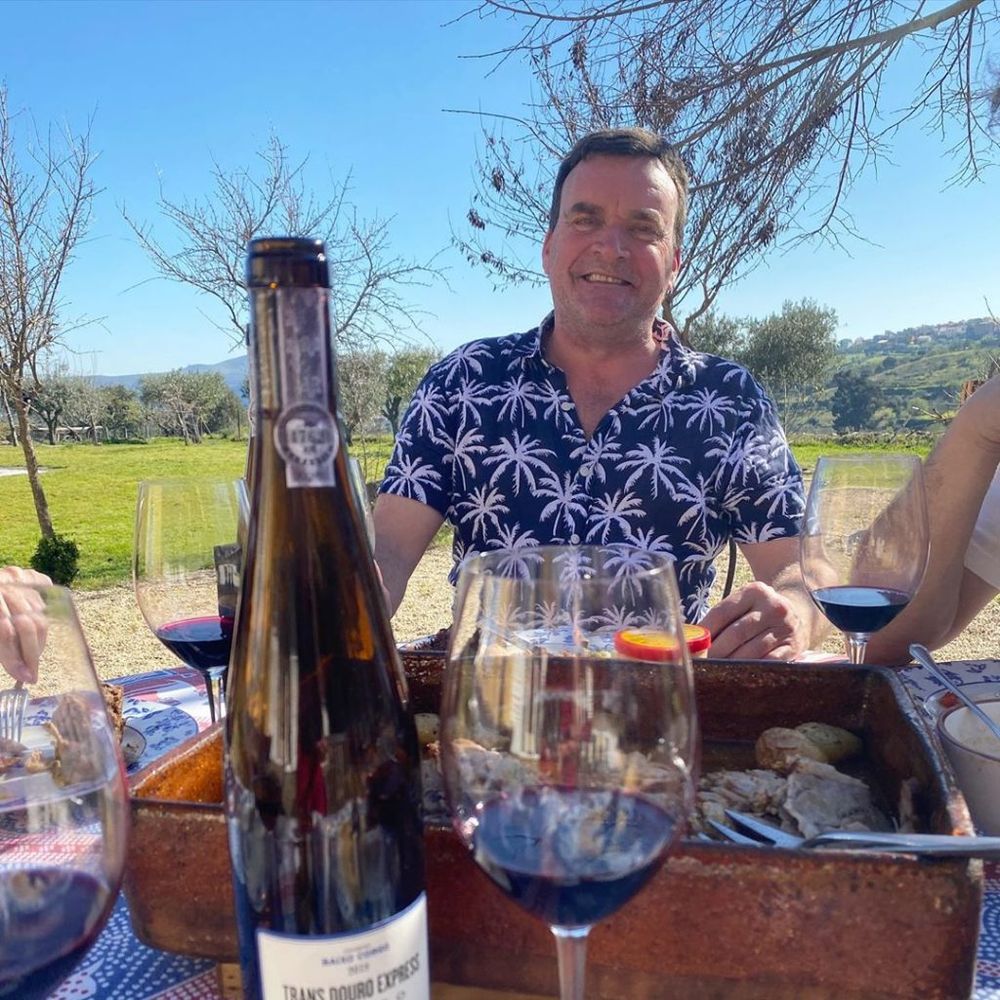
Anton Mann, co-owner of Xisto Wines
The trip takes just over two weeks which Anton is quick to point out is not that much longer than fossil-fuel-propelled trips. And a lot less polluting. They do not charge a premium to the customer for the carbon saved, and sell the wines for the same margin as carbon-heavy delivery, knowing their regular clientele are buying into the ‘greener’ concept, even to the extent of some buying the wines upfront to secure allocations.
“By truck each case would be using .6 to .7 of a kilo of carbon, a case of wine from New Zealand is 2 kilos a case. We are trying to do Porto to Bristol on zero and re-use all the pieces in the chain. People talk about reducing their carbon emissions by 15% but then are using a very wasteful bottle,” Anton says.
Other elements of the wine-importing cycle include the bottles that are largely recycled (Espumante bottles used for the wines that travel by barrel), others that are turned into tapas dishes, and delivery in the UK both to trade and direct-to-consumer using re-usable materials. Anton believes the trade skirts round the issue of plastic and how much is used in delivering wine, taking the shrink-wrapping of pallets as just one example of where waste can be eliminated. Instead of plastic he delivers using materials and methods which avoid this unnecessary waste.
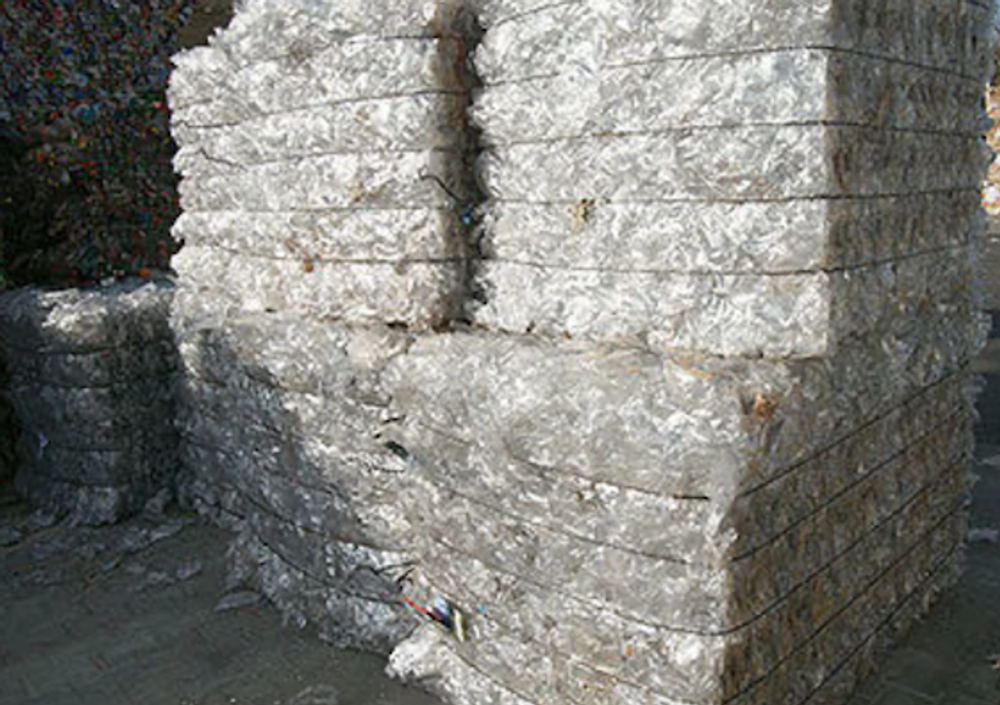
The inconvenient truth – waste plastic from shrink-wrapping pallets
“Polluters pay and people are realising this more and more now, on how it affects the seas and the planet. In Germany there is a tax on packaging, for example, which is a policy that would really help us by taking into account the way we do things; sailing wine in rather than travelling 1000s and 1000s of miles at sea using bunker fuel – which is the dirtiest form of crude oil – and then dumping it at sea when no-one’s looking,” he adds, with the look of someone who knows the tricks of the seafaring trade.
“We spend a lot of time and go to a lot of trouble on this and we also run on extremely low overheads. So we want ‘polluters to pay’ as the new norm… we want to have a level playing field.”
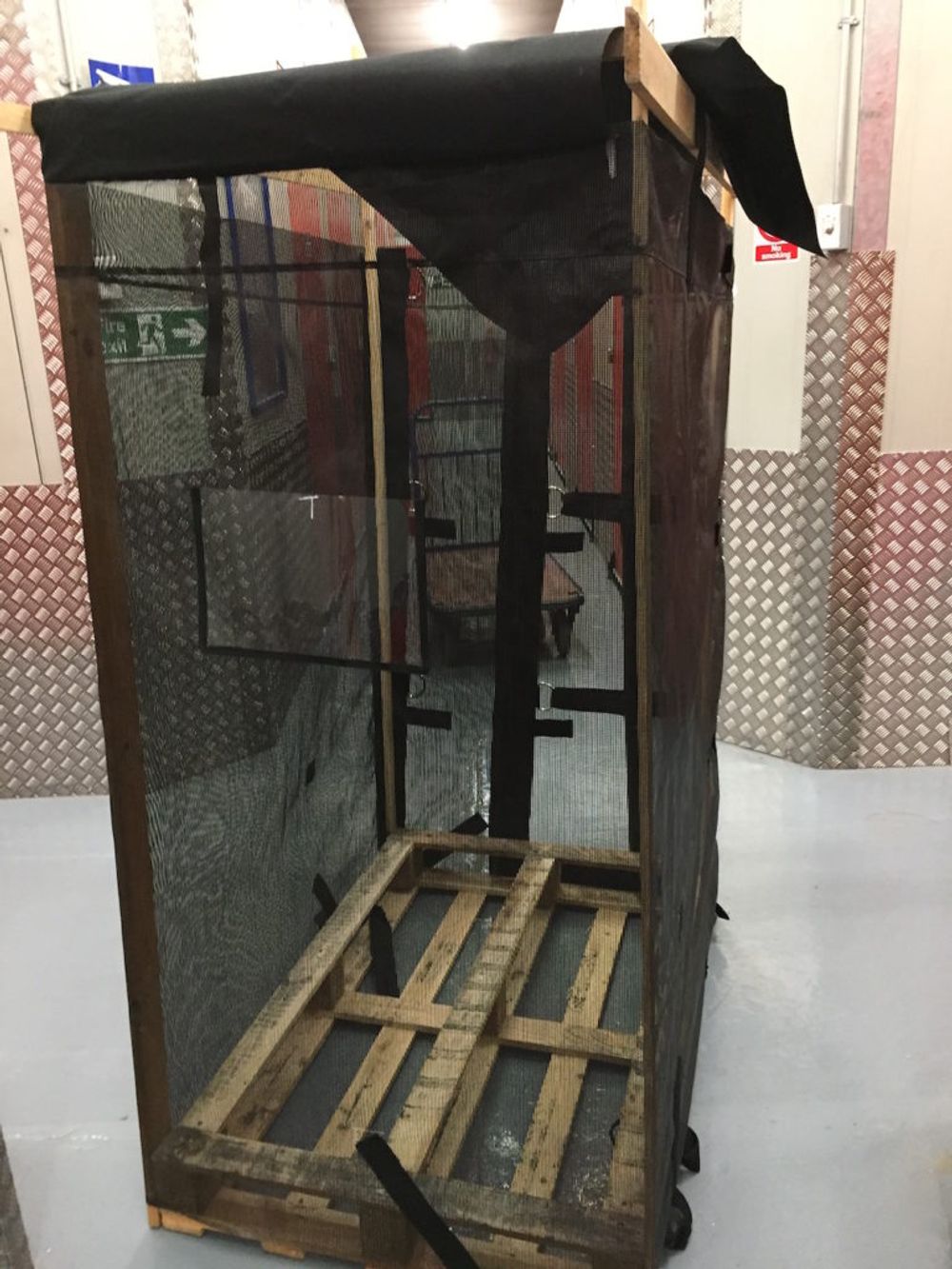
How Xisto ships pallets – re-usable materials that eliminate plastic waste
The waters of the Bay of Biscay and port manoeuvre dictates that Xisto’s boats actually do carry an engine which are only used when absolutely imperative, with the running time recorded so that there is accountability at every stage of the process.
So what are the wines like?
Of course none of this would make any sense if the wines Xisto imports weren’t as good, different or as sustainably produced as its philosophy dictates. The aim is to source the most natural, authentic Portuguese wines, made using indigenous grapes, with the least impact on the planet – and also ones that deliver taste-wise and with good value for money.
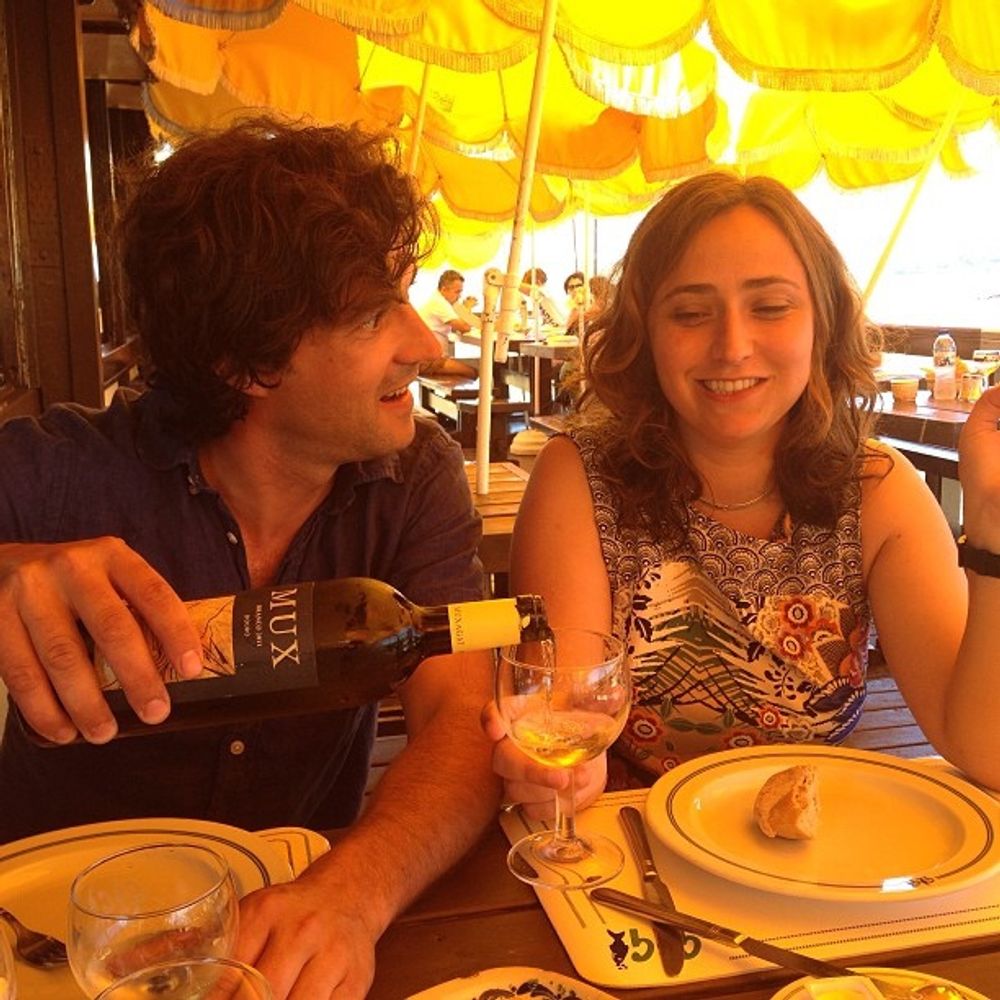
Mateus Nicolau Almeida, fifth generation winemaker
The turnaround for Anton, from effectively having a paid pastime to a wine-importing business proper was a chance meeting with award-winning winemaker Mateus Nicolau Almeida, founder of an alternative wine show in Porto.
From there Xisto has set up exclusive arrangements with a series of new wave young winemakers in Portugal, who work sustainably making small batch wines with a sense of place through sustainable farming, organic and biodynamic methods and minimal intervention winemaking.
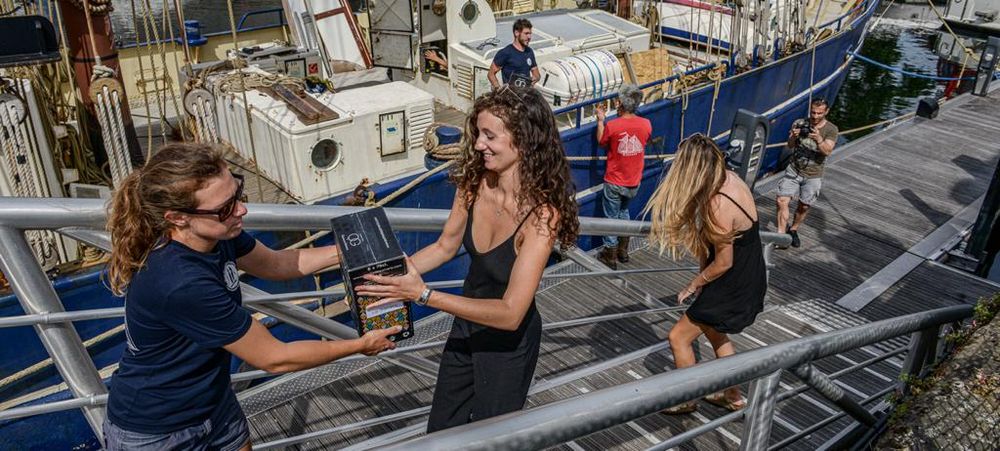
Unloading the Gallant in St Katharine’s Dock
Almeida is a fifth generation winemaker whose father made one of the Douro’s most iconic white wines, and who himself makes a fascinating range of wines that explores the different micro-climates and soils of the region (all of which Anton carries). The wines are made with the same level of passion and sense of discovery that Anton has for powering his business.
Xisto currently carries 28 wines from 14 producers in Portugal – apart from the farming and winemaking criteria, they have to be located near Porto to remove or substantially reduce any carbon emissions. The first collaborations between Anton and the winemakers were entirely based on using barrels for transportation, but that has now been extended to bottles as the company has grown, which has allowed more volatile wines to be imported – in the early days it was only highly structured reds which made the voyage.
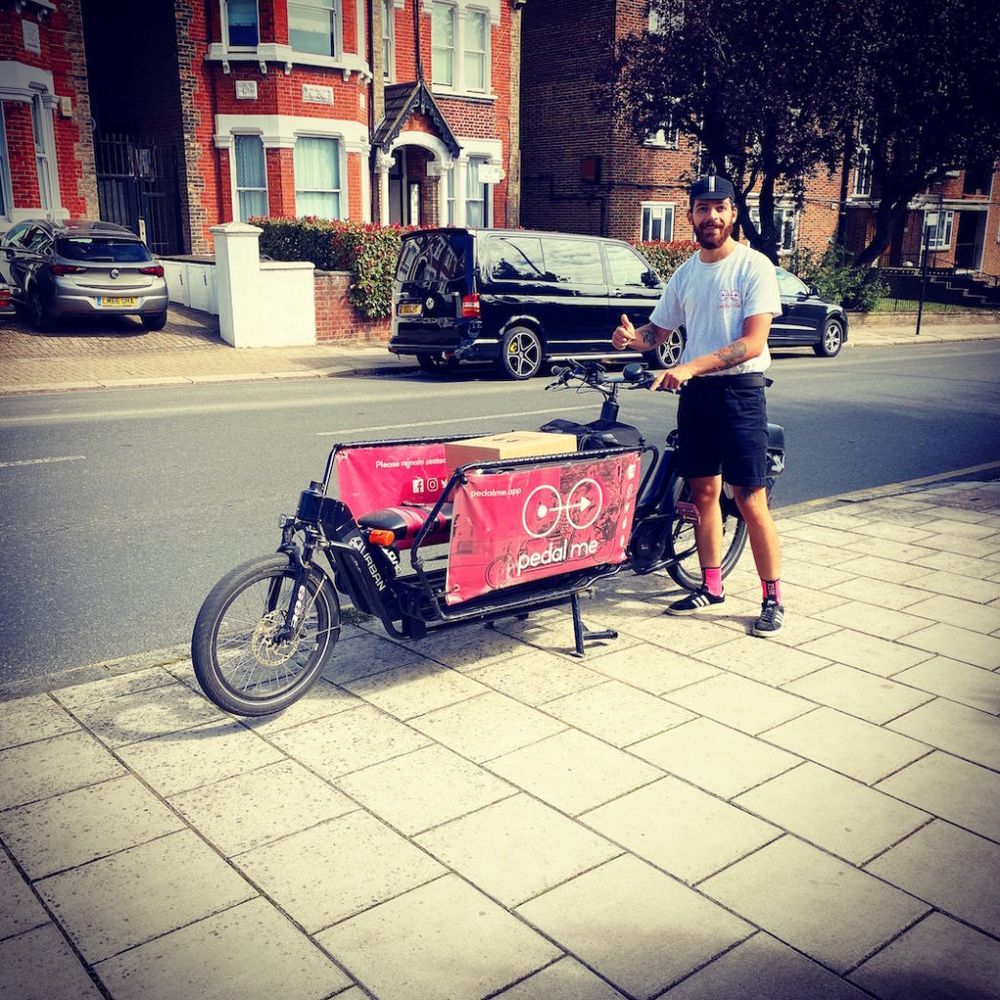
Once the Gallant had docked at London’s St Katharine’s Dock the sample bottles for our tasting were cycled over to me by Pedal Me.
There was a light, fruity, slightly petilant Vinho Verde called QG Avesso that just uses the Avesso grape (£16 RRP); one of the three wines Mateus Nicolau Almeida makes from three different soil types called Antao do Desero, Eremitas, 2016 (£20) which was a complex white that was salty, nutty, had a whiff of bonfire smoke and great grip; Lagar de Darei (£8 ex VAT) which I didn’t try and Rufia (£16) a bright, sour strawberry pink with a bit of attitude.
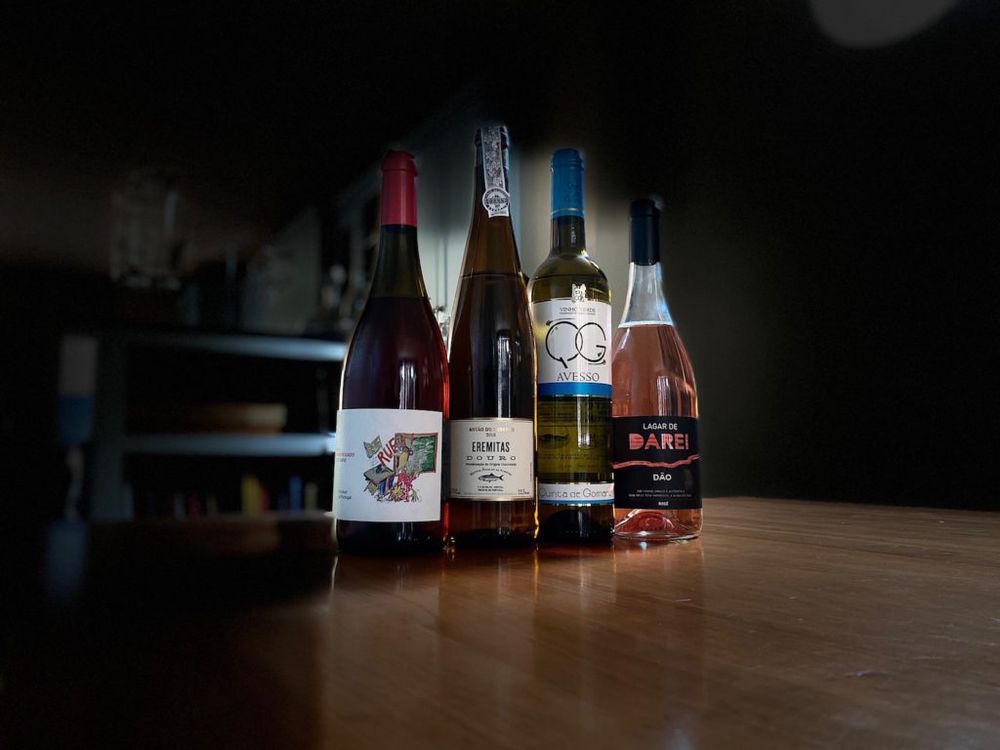
They are wines which Anton admits will probably need a hand-sell in the on-trade, with the hospitality business becoming more of a focus again after the DTC necessities of Covid. Xisto is also branching out and extending its on-trade reach from Bristol to London, with on-board trade tastings planned in August and September respectively.
“I want to work with the restaurants in London,” Anton says, “It’s already got off to a good start with the Hoxton Hotel coming to ask us for our winemakers because they work with them in their New York hotel and the somm wants them in London.”
Bristol has become England’s second food and drink capital over the years, of course, drinks-wise it’s the home of such imaginative outfits as craft distillers Psychopomp. What is it about the city that has given birth to such entrepreneurial spirit?
“It’s always been a bit rebellious,” says Anton, “it’s an innovative city, very popular with a creative edge to it, it’s also become this hub of food and drink, it had the first vegan fair and organic wine fair, very often these things would start in Bristol, there’s something in the water.”
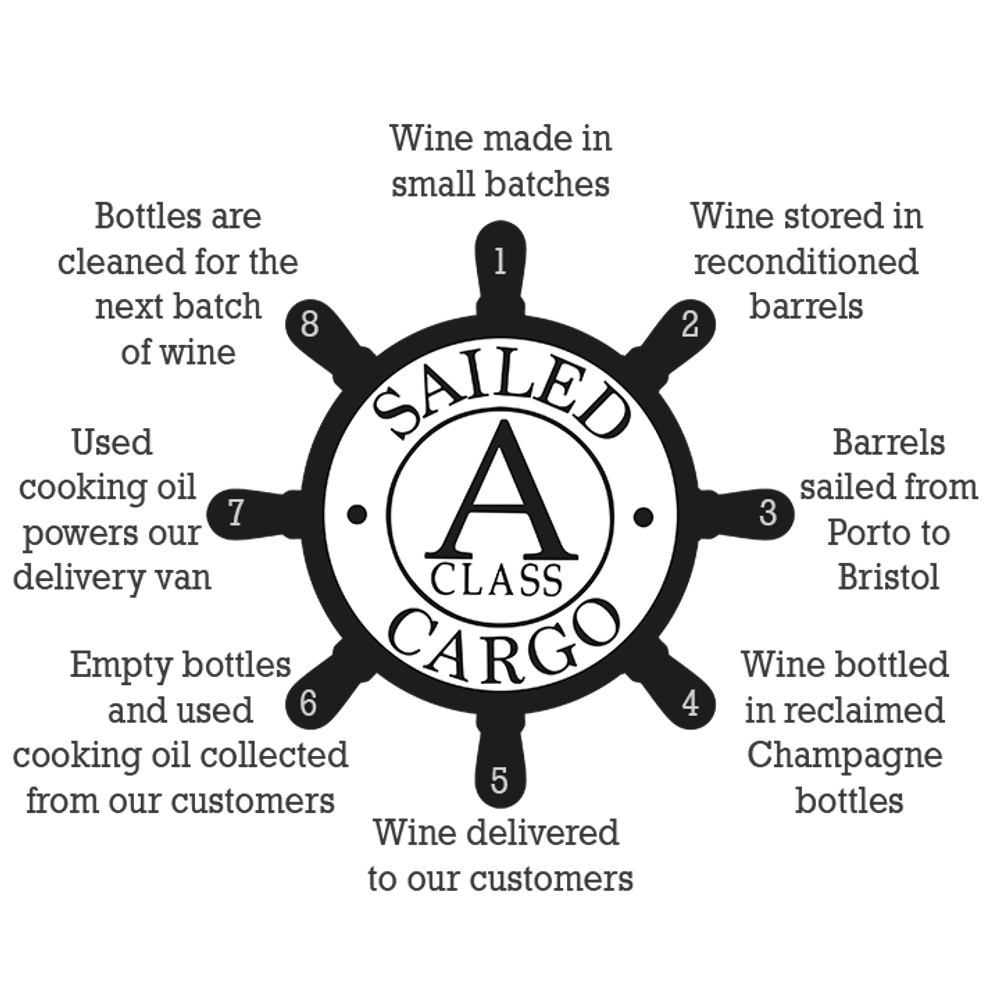
Xisto’s Circle of Zero Waste modus operandi
